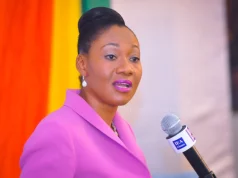The Ministry of Chieftaincy and Religious Affairs has organized capacity building training for Registrars of traditional councils in the northern sector in Tamale to end Gender-based Violence and Harmful practices including Child Marriage using the National framework.
Issues of Gender-based violence remain a significant concern in Ghana with various factors contributing to its prevalence and persistence.
As a result, the Ministry in partnership with the United Nations Population Fund (UNFPA) organized the workshop for selected officers from 8 Regional House of Chiefs to deepen their understanding of gender-based violence and child marriage as well as gender stereotyping.
The Deputy Director and Head of the Religious Affairs Unit at the Ministry of Chieftaincy and Religious Affairs, Mr. Richard Obeng Boafo, in a media interview on the sidelines of the program highlighted the role of these registrars in dispute resolution at the various traditional councils in their respective jurisdictions.
He noted issues of gender-based violence, child marriage and exploitation of the vulnerable in society are brought before them [registrars] on daily basis and so the need to give them some training in order for them to handle these issues that comes before them.
He added, “Most times those issues come before them and they don’t know how to handle them and so we decided to join hands with the UNFPA to give this training to our traditional council registrars to equip them with the necessary tools so that they would be able to help us at the grassroot level”.
“…They are going to be trained on the child marriage tool kits, we have designed a tool kit for engaging traditional authorities and so they will be taken through that, so that they can advise our chiefs” Mr. Boafo stated.
The Northern Regional Director for the Department of Gender, Madam Bushira Alhassan, bemoaned issues of marriage is still a major concern in the five regions of the North stressing the necessity to engage the traditional authorities in addressing the menace.
She disclosed that the Department of Gender with support from the UNFPA has developed a national framework to engage traditional and religious leaders on how to address these issues in their various jurisdictions.
“They have a role to play and so they should understand this and then put in their best to address these issues. The government agencies cannot do it all and so that is the reason why we’re engaging them” she emphasized.







































